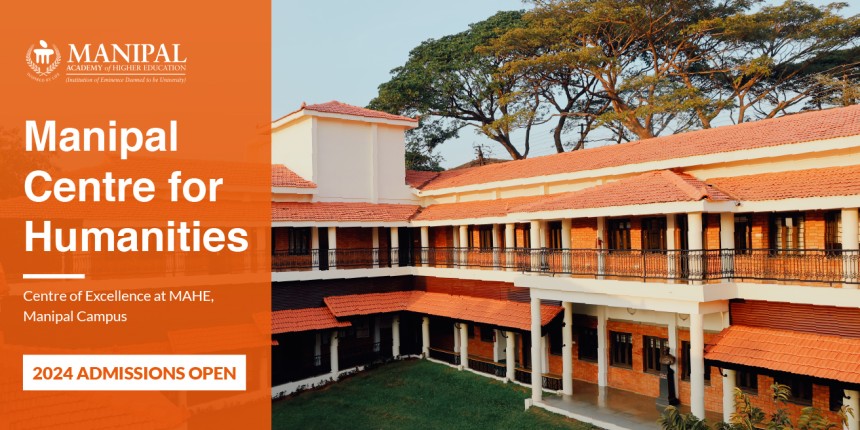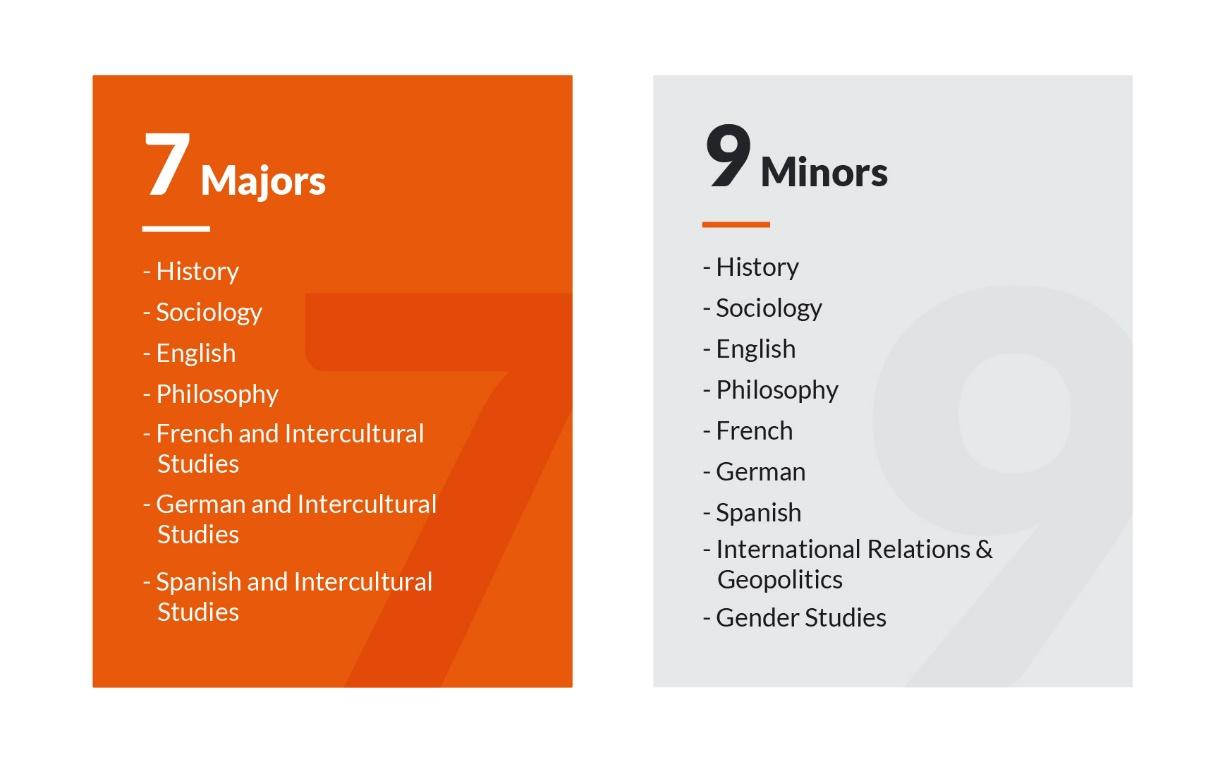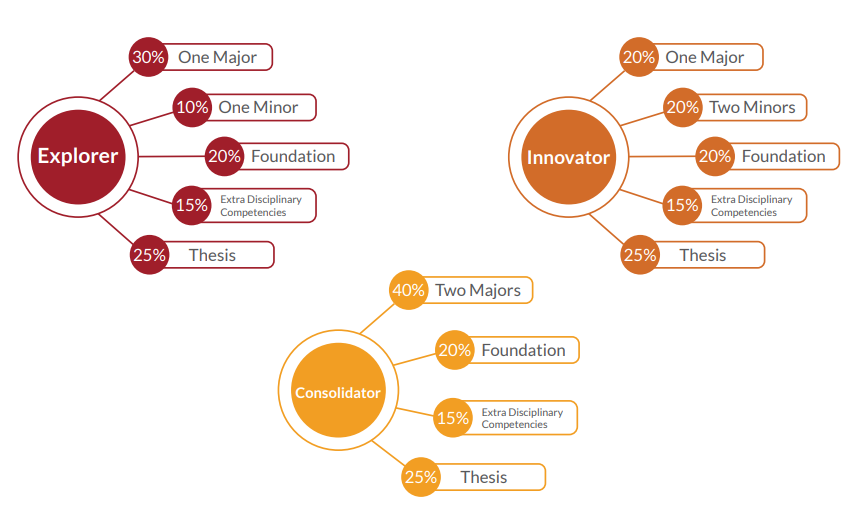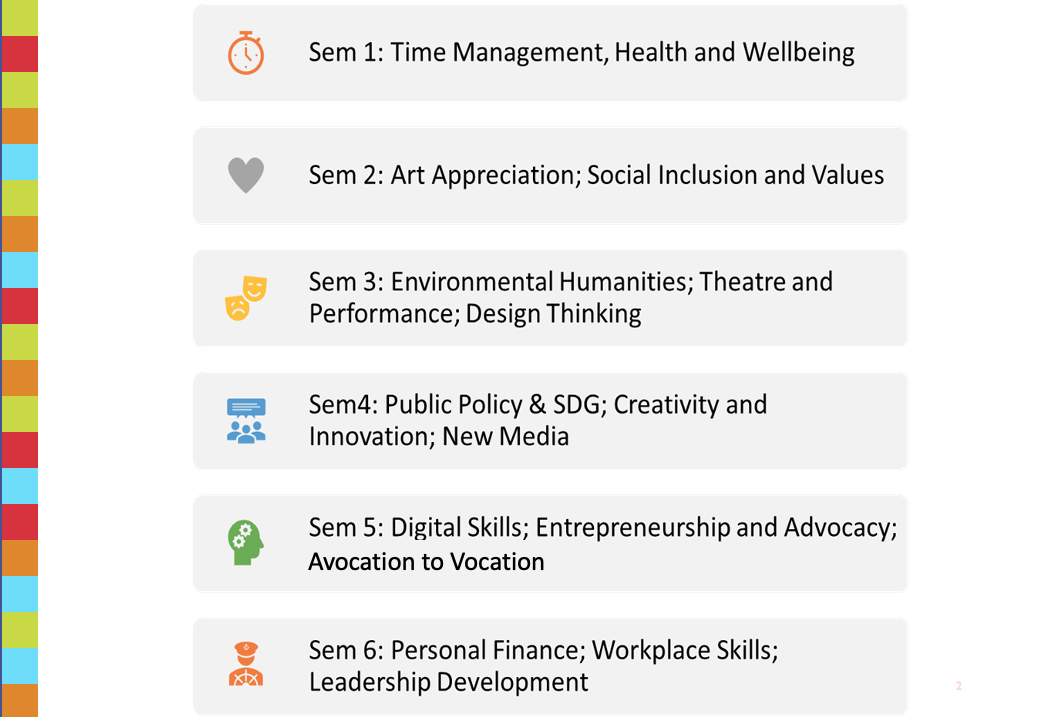Manipal Centre for Humanities BA - What's Unique?
Established in 2010, Manipal Centre for Humanities (MCH) stands out for its innovation and quality in academia, providing a unique Bachelor of Arts (BA) programme that breaks down traditional barriers for students. The MCH BA programme, which is based on the values of intellectual inquiry and multidisciplinary learning, is evidence of the MCH dedication to producing well-rounded people who have a comprehensive awareness of the world.

What truly sets MCH apart is its emphasis on experiential learning and practical engagement. Students are not confined to classrooms but are actively encouraged to immerse themselves in real-world contexts through internships, fieldwork, and community projects. To know all about the BA programme at the Manipal Centre for Humanities, read the full article below.
Q. Give key features of the BA in Humanities course.
A. The key features of the BA Humanities course are as follows:
Innovative choices and combinations of Majors and Minors
Training and mentorship through unique modes and exciting pedagogies.
Students will receive international exposure through international tie-ups with prestigious foreign universities.
Students will be able to attend and participate in workshops, conferences, and guest lectures by reputed scholars and artists.
Foreign languages for credits and standard certificates.
Q. What sets the course apart from regular courses?
A. The courses adopt a multidisciplinary approach and introduce students to the foundational theories and methods of English, History, Philosophy, Sociology, Languages and Intercultural Studies. Students will be taught foundational concepts as well as the latest scholarship. Different forms of pedagogical techniques such as case-study analysis, fieldwork, guest lectures and self-learning have been incorporated in the curriculum to help the student receive a holistic education. The program also includes credited coursework in allied fields and life skills.
Q. The website mentions that students can curate their own learning pathways and nurture adaptive skill sets in the Humanities and Social Sciences. Please explain the how and why.
A. At the end of the first year, the students can choose from three different learning pathways: Explorer (1 Major + 1 Minor), Innovator (1 Major + 2 Minors) and Consolidator (2 Majors). The program incorporates credited coursework in Extra Disciplinary Competencies (EDC) through six semesters to nurture valued skillsets and to support self-development. Each learning pathway is intended to suit the skillset and inclination of the student.
Q. What constitutes the dynamic curriculum and how does it cater to evolving global professional standards?
A. The dynamic curriculum includes foundational and contemporary courses across 7 majors and 9 minors, allowing students to cultivate their own learning journey according to the three available pathways. Through the dynamic curriculum, students experience international exposure from within the classroom itself. The diversity of courses transforms students into well-rounded multi-skilled professionals. The curriculum emphasises academic excellence and specialised research to prepare students for success in a global context with versatile skill sets.
Q. What are the majors and minors that students can choose?
A. Students can choose from 7 majors and 9 minors:

Q. Is the course on the lines of NEP 2020? So, students who graduate in 3 years will receive the degree in humanities.
A. The course follows NEP 2020 and students will be able to graduate with a BA in Humanities after 3 years.
Q. What are the foundation courses in the first 2 semesters and how do they help?
A. The foundation courses of MCH would focus on critical thought, academic writing, foreign languages and cultural perspectives. These courses are designed to introduce key concepts and theories of the major disciplines in Humanities. After a preliminary multidisciplinary exposure to all areas of Humanities, students will be able to choose the most suitable learning pathway at the end of first year.
Q. After the first year, students have the option of three pathways, namely Explorer, Innovator and Consolidator. Please explain these in detail.
A: The courseload per pathway is distributed as follows:

Q. What are the Extra Disciplinary Competencies (EDC)? How do they benefit students?
A. The programme incorporates credited coursework in Extra Disciplinary Competencies (EDC) through six semesters to nurture valued skill sets and support self-development. These are the EDCs facilitated per semester:

Q. If students wish to explore allied fields like art, publishing, and theatre, how does the centre support and facilitate this?
A. This is supported by the Extra Disciplinary Competencies, events and workshops at the Hebbar Art gallery, the extracurricular clubs such as the Film Club and by engaging with Chaicopy (MCHs student led literary journal). Faculty and students also from time to time invite theatre artists and organise theatre workshops for students.
Q. There is mention of a 4th year research track that leads to a BA (Honors) degree. Please explain the process for this.
A. After the 5th semester, if the required CGPA is met, students will be invited to continue as a research student to work on a thesis in their chosen subject. There will be relevant course work as well.
Q. What are the research areas supported for students opting for the BA Honors degree? And what kind of support is given to students pursuing this?
A. Students can choose from a wide range of topics and they can pursue their research in many areas such as literary and film studies, medical humanities, gender, politics and society, popular culture, media and society, and caste identities.
Q. What kind of placements can one expect after doing the BA in Humanities? Please mention roles and typical recruiters.
A. The BA program opens doors to multiple career avenues. From media and research to publishing and corporate roles, the programme equips you with the skills and knowledge to thrive in diverse professional fields. Graduates will be able to work in varied institutional settings—governmental and non-governmental, corporate, as well as international bureaucracy and philanthropy. Career opportunities for BA Humanities graduates lie in publishing, communication and media, education, arts curation, social sector, and the corporate sector.
Q. What is the scope for BA in Humanities?
A. The BA is the stepping stone for higher education and the job market in Humanities. After school, the BA is the most important and primary degree for all students of the humanities who wish to have a career in Humanities. In the BA degree students get to choose their specialisations, which helps them understand their career prospects and areas of interest as well.
Q. What after a BA in Humanities?
A. Interested students may pursue higher studies in the best institutes in India and abroad. BA students can continue at MCH on to the MA programmes and even the PhD programme. The academic and research skills gained through BA Humanities also equip graduates with a diverse skill set to enter the global professional scene and pursue career opportunities across various institutional settings and in multiple fields like publishing, communication and media, education, arts and social work.
